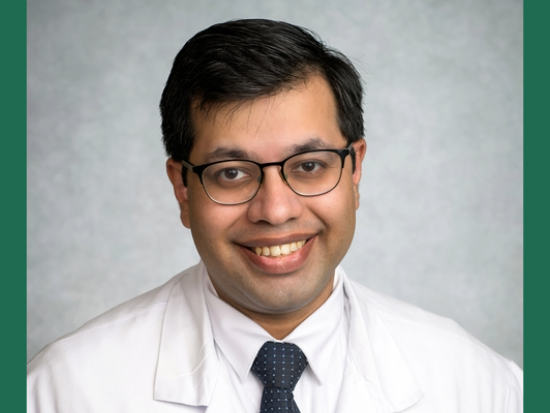 The UAB Department of Neurology welcomed Muhammad Bilal Tariq, M.D., to the faculty as an assistant professor in July 2024.
The UAB Department of Neurology welcomed Muhammad Bilal Tariq, M.D., to the faculty as an assistant professor in July 2024.
Tariq completed medical school at Aga Khan University in Pakistan, where the program spans five years.
Before joining UAB, Tariq completed an internship in medicine at the University of Texas Health Science Center in Houston, where he also completed his neurology residency. He then pursued a Vascular Neurology Fellowship at the University of California, Los Angeles.
Tariq reflects on what inspired his career and shares his excitement for his new role in the department.
What inspired you to pursue a career in this field?
Tariq: Before entering medical school, I briefly studied electrical engineering, but I quickly realized that I found people far more interesting than numbers and math. This led me to pursue medicine. Having had family members suffer from both ischemic and hemorrhagic strokes, my interest in the brain had already begun before medical school.
However, as I learned more about the field of neurology and the rapid advances in both diagnosis and treatment—especially the mechanical thrombectomy revolution in 2015—my passion grew, inspiring me to pursue a career in neurology, followed by training in vascular neurology. I treat patients with a wide range of vascular neurological conditions, with a particular focus on prehospital stroke care and intracranial atherosclerosis.
What aspects of your new role here are you most excited about?
Tariq: This is my first job after training, and I’m truly excited about all aspects of it. I have the privilege of working with outstanding vascular neurologists and cerebrovascular neurosurgeons, and I’m eager to continue learning from them. I also enjoy working with trainees and hope to help guide them while bringing additional enthusiasm to residents pursuing vascular neurology. UAB is located in the heart of the stroke belt and is a StrokeNET site, providing numerous clinical research opportunities.
Additionally, UAB is one of Alabama's few comprehensive stroke centers, attracting patients from across and even neighboring states. It’s an honor to help these patients experience less disability from their strokes and work towards reducing their risk of having another one.
What are your goals for making an impact through both your teaching and patient care in this role?
Tariq: Stroke is an incredibly stressful diagnosis. My goal for my patients is to provide them with the most up-to-date treatments, ensure they receive expedited care in the hospital, educate them about their stroke risk factors, and work with them to cut down on their risk of having a stroke.
As we take care of these patients, I hope the residents will gain further confidence in their ability to provide similar care for their patients when they graduate.